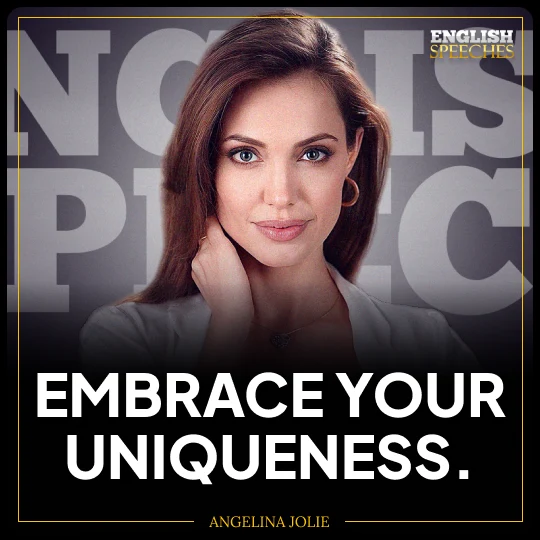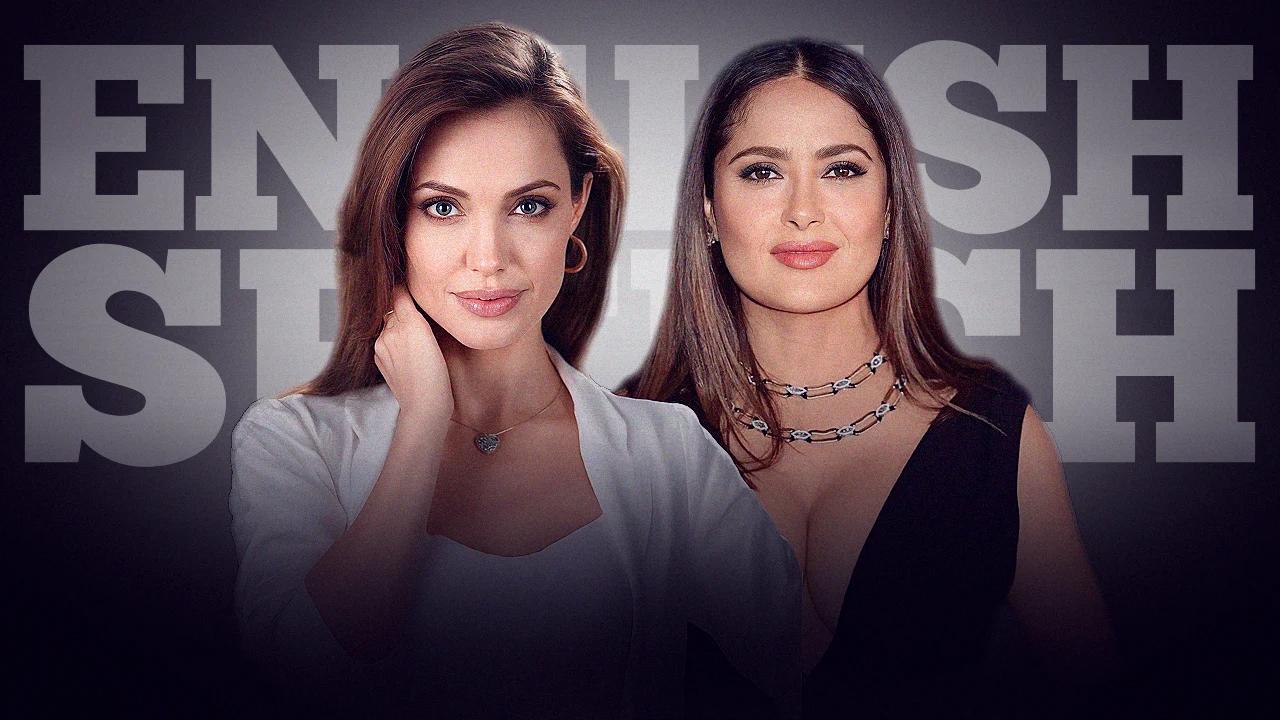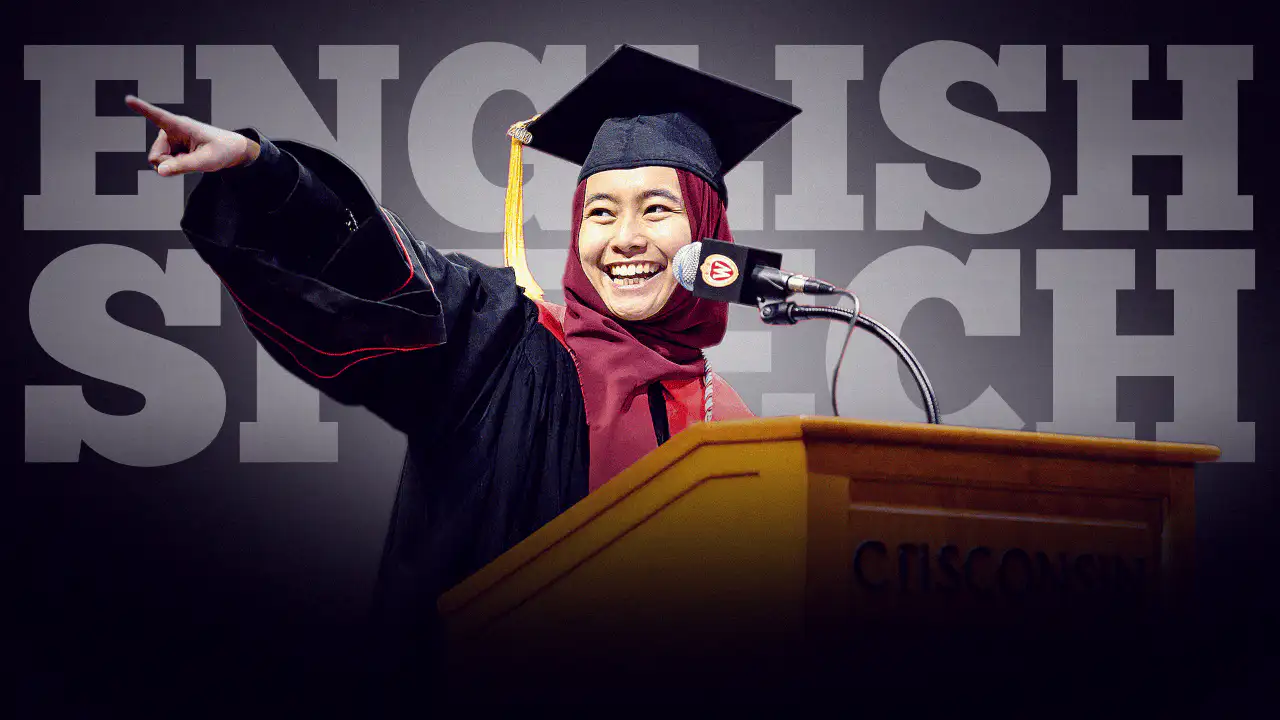The 2024 Toronto International Film Festival brought together renowned actors Angelina Jolie and Salma Hayek, sharing their experiences from the emotionally intense film Without Blood. Directed by Jolie, the film explores the lasting impacts of war, human resilience, and the power of dialogue. In an insightful Q&A, they discussed the challenges of adaptation, casting decisions, and the complexities of conveying war’s toll. Jolie and Hayek’s conversation offers a profound look into the art of filmmaking and the role of storytelling in sparking dialogue and understanding.
Exploring Universal Themes in “Without Blood”
Vocabulary Highlight:
- Adaptation (noun): The process of changing a work from one form to another, like a book into a film.
- Example: “The adaptation of the novel was both challenging and rewarding for Jolie.”
- Complexity (noun): The state of having many different parts or aspects.
- Pronunciation Tip: /kəmˈplɛksɪti/
- Example: “The complexity of war is a central theme in the film.”
Grammar Focus: Conditional Sentences
- Example from Text: “If you really don’t want to do it, who should I cast?”
- Explanation: Conditional sentences show the result of a condition.
- Structure: if + present simple, will + base verb
- Example: “If I have time, I will join you.”
Simplified Explanation:
In the sentence, “If you really don’t want to do it,” the condition sets up a possible outcome of the speaker casting someone else.
Key Points from the Conversation with Angelina Jolie and Salma Hayek
- Commitment to Authenticity:
- Definition: Ensuring the film remains true to its universal themes.
- Example: “Jolie fought to keep the film’s themes relatable to all audiences.”
- Collaboration in Filmmaking:
- Definition: Working together creatively to achieve a common goal.
- Example: “The cast collaborated closely to portray the depth of their characters.”
- Handling Emotional Complexity:
- Definition: Navigating the challenges of conveying intense emotions.
- Example: “Hayek admitted that portraying her role was emotionally complex.”
Jolie and Hayek’s discussion reflects the intricate balance between portraying human resilience and the harsh realities of conflict. Their approach shows a dedication to authenticity in storytelling.
Lessons and Themes
Vocabulary Highlight:
- Resilience (noun): The ability to recover from hardship.
- Pronunciation Tip: /rɪˈzɪliəns/
- Example: “The characters exhibit resilience in facing their traumatic past.”
- Empathy Through Storytelling:
- Definition: Using stories to foster understanding and compassion.
- Example: “Jolie hopes the film inspires empathy for people affected by war.”
- Humanizing War’s Impact:
- Definition: Showing the real, human toll of conflict.
- Example: “The film brings attention to the long-lasting scars left by war.”
- The Importance of Dialogue:
- Definition: Engaging in open conversations to understand others.
- Example: “Hayek emphasized the need for dialogue in overcoming misunderstandings.”
Reflecting on Jolie’s Filmmaking Approach
Vocabulary Highlight:
- Authenticity (noun): The quality of being genuine or real.
- Pronunciation Tip: /ɔːˈθɛntɪsɪti/
- Example: “Her authenticity as a filmmaker shines through in this project.”
Sentence Structure: Complex Sentences
- Example from Text: “Because they were so strong, I was able to stay and be pulled into.”
- Explanation: Complex sentences add depth to expressions.
- Structure: main clause + because + dependent clause
- Example: “He stayed home because he was feeling unwell.”
Pronunciation Tips:
- Adaptation: /əˌdæpˈteɪʃən/
- Complexity: /kəmˈplɛksɪti/
- Authenticity: /ɔːˈθɛntɪsɪti/
Conclusion
Through this conversation, Jolie and Hayek provide valuable insights into the art of storytelling, resilience, and empathy. Their discussion not only reveals the depth of their film **Without Blood** but also highlights the essential role of filmmakers in sparking meaningful conversations about the human condition. Jolie’s dedication to universal themes and Hayek’s commitment to authenticity showcase the impact of cinema in bridging divides and fostering understanding.
Learning Tips:
- Practice New Vocabulary: Use the highlighted words in sentences related to current events or personal experiences.
- Grammar Exercises: Form complex sentences using conjunctions like “because” or “although.”
- Pronunciation Practice: Repeat the pronunciation tips aloud to enhance fluency.
- Reading Comprehension: Summarize the key points of Jolie and Hayek’s discussion in your own words.
Integrating Jolie and Hayek’s insights into your learning journey not only develops English skills but also deepens your understanding of global themes, empathy, and resilience.
Donwload available for Premium Subscribers
PDF Full Transcript
Explore every word with our concise PDF transcripts.
Audio Version
Immerse in speeches with clear, downloadable audios.
English Lesson
Enhance English skills with interactive speech lessons.
⚬ Free 30-day trial

”Embrace your uniqueness.
Download available
for Plus Members
PDF Transcript
Access the full speech in an
easy-to-read PDF format.
Audio Version
Listen and download clear,
high-quality MP3 recordings.
English Lesson
Includes vocabulary
and grammar practice.
Offer ends in:
Offer ended.
Transcript
Host: Thank you so much for the film. You know, it’s a serious film about a very serious subject, but what I really appreciated was how it gives the time to deal with the long-term impact of war. And I wanted to ask you first, Angelina, about adapting the book with the novelist and what choices you were making about where you wanted to keep the focus as you turned it into a film.
Angelina Jolie: He said to me when I first met with Barrico, he said, “They’re going to force you to change the end.” “They’re gonna force you to pick a country.” “They’re gonna force you to decide what year it is.” “Try to hold.” And because it’s intended, this is what it’s intended to be, you know, but sometimes these things don’t, we don’t get to leave them because there’s an impulse or a feeling that you have to finish something or explain something. So now I think back, I feel like he was almost challenging me instead of warning me. So I think it was that, it was the commitment to, that it’s universal. I think the book is so strong, but really it rested so much on what could be alive at that table. I shot, we shot so much ’cause I didn’t know how much until they gave their extraordinary performances. I didn’t know how much I was gonna be able to stay and how much I was gonna have to reenact. And because they were so strong, I was able to stay and be pulled into. So really we were, I was in some way prepared for to adapt in different ways. But then it was them.
Host: And at what point did you choose your cast for the film? At what point did you decide that Salma and Damien were the ones that needed to be in these two roles?
Angelina Jolie: I mean, I thought of Salma early and I called her and she said no.
Host: What? Salma.
Angelina Jolie: You didn’t know I was gonna say that, did you? I was gonna admit it.
Salma Hayek: I love it that you’re saying it. First I didn’t know she was gonna direct it.
Host: Microphone.
Salma Hayek: I got confused.
Angelina Jolie: Oh, see this…
Salma Hayek: The beginning she sent me the script. I was looking for material. And I always get confused. She sent me the script and I said something. I said, it’s super interesting but it’s completely director dependent. So I don’t know.
Host: And she is the director.
Salma Hayek: I didn’t know, yeah. And then she comes back to me. And we’re talking and it comes out that it’s her directing. And she said, well, if you really, really don’t wanna do it which I don’t understand why. Who should I cast? And I go, but what do you mean? You’re directing it? I thought you were just producing it. And no, no, no, this is my next. Now mind you, I was confused but she always has a lot of projects. So I thought it was gonna be a different one going first. She was just producing. And all of a sudden it just went like, boom. I know I’m producing it in two months. You better make a decision or something. And then I said, I’m afraid to suffer so much. I don’t wanna put myself through this character. I’ve suffered my entire life. Now life is good for a moment. I don’t wanna go to Amur. I’m just gonna be in pain the entire time. I don’t wanna go there.
Host: But you did, what made you decide?
Salma Hayek: She convinced me. I don’t even remember. I don’t know, before I knew it, I was already on the set loving it.
Host: On set with these two wonderful actors and a lot of dialogue and a lot of emotional peaks and valleys between the two of them. How are, what are you saying to them on set? How are you guiding them through the dynamics of this relationship as it’s evolving?
Angelina Jolie: I mean, there’s so much they probably don’t realize. I said to them separately so I wouldn’t tell you everything now. But it was almost like, you know, they had to come to the table with one point of view, strongly, and then the table had to, and the conversation had to actually, they had to convince each other through the days that would happen and they would give space for each other and they would listen to each other and then they would, the next day, have heard the other and ask different questions. And it kind of kept changing and I had this privilege of being there watching them and listening to them as they would kind of lead all of us through this and let it happen and be so open. So a lot of it, I was guiding a little but I was listening a lot.
Salma Hayek: I want to correct myself on something. It’s not the most difficult role I played. It’s the most, maybe most complex. But it was kind of easy in a way. Now, if I really think about it, it seemed really hard. I was surprised how fast we would get there. Honestly, it was like…
Demián Bichir: It was moving very fast.
Salma Hayek: Yeah, because… he was so good and she was so good and everything was so right and the crew and the rest of the cast, it was just something that kind of flow. I was afraid every day because… she would ask for impossible things and we’d look at each other.
Angelina Jolie: You need your mic.
Salma Hayek: With, from time to time, from time to time, she would ask for unexpected, kind of impossible things, or just beautifully strange things. And sometimes we’d look at each other and say, what? To be specific, there’s a range of things. She was doing so well that she was ahead of time. It never happens. So you saw there’s a lot of dialogue, right? She would go, guys, good news. It’s amazing, we’re doing so well, we’re ahead of time. So I will give you, what do you need? 45 minutes to learn the next five pages of monologues while I move the lights because I think we can shoot it today.
Host: That was the good news.
Salma Hayek: And we were so in awe of her magic and magnificence and so grateful because she’s an amazing director. That we’d look at each other and we’d go, okay. And then she would leave and she’d go, how the hell are we gonna learn? I don’t know, but let’s start trying, you know? And it was fun and all of a sudden we would do it and we’d look at each other and, oh my God, I said… yes, yes. We were surprised of ourselves.
Host: That’s fantastic. It’s inspiring actually that you can get that from your actors. I just maybe wanna ask one last question. Something that you alluded to in the introduction that this is a film you kind of need to sit with. There’s a lot of substance here, a lot of kind of deep ideas, a lot of grappling with the impact of war and what it means for each one of us. As we sit with it, as we leave the theater and we sit with this film and what you’ve told us in it, what kind of, I don’t know, words of direction do you have any that you would offer us in terms of how we sit with a film like this? ‘Cause it could last, you could think about it days and weeks later.
Angelina Jolie: It’s… bless you. I suppose I wish we’d just all sit together and just keep talking. I think that’s the part of it, is it should just start a conversation that I don’t really have an end to or an answer. I think one of the interesting things within it is this idea that now that you’ve seen it, you understand this idea of, well, who’s a bad guy? Who’s wrong? Who’s right? Who’s, there’s this idea that there’s some absolute and how important that is. And that the power and how hard it is to sit at that table, right? It wasn’t easy for you to join them at that table. That is the hardest table to sit at and the most important table to sit at, right? For us to get through this life and for us to understand each other and so much of that’s happening in the world because we’re unable to do that. So, I don’t know, I just hope that there’s more conversation and… that’s really it. Just to thank you for really sitting with us ’cause I really know this isn’t an easy one. In the beginning as this opens and I see the violence and the pain, I know that’s not easy. It’s intentionally not easy. And then I thank you for staying in your seat and continuing to listen. So, thank you.
Host: Angelina, thank you for the film. Thank you, Salma. Thank you, Damien. Please join me in thanking the team from Without Blood.






